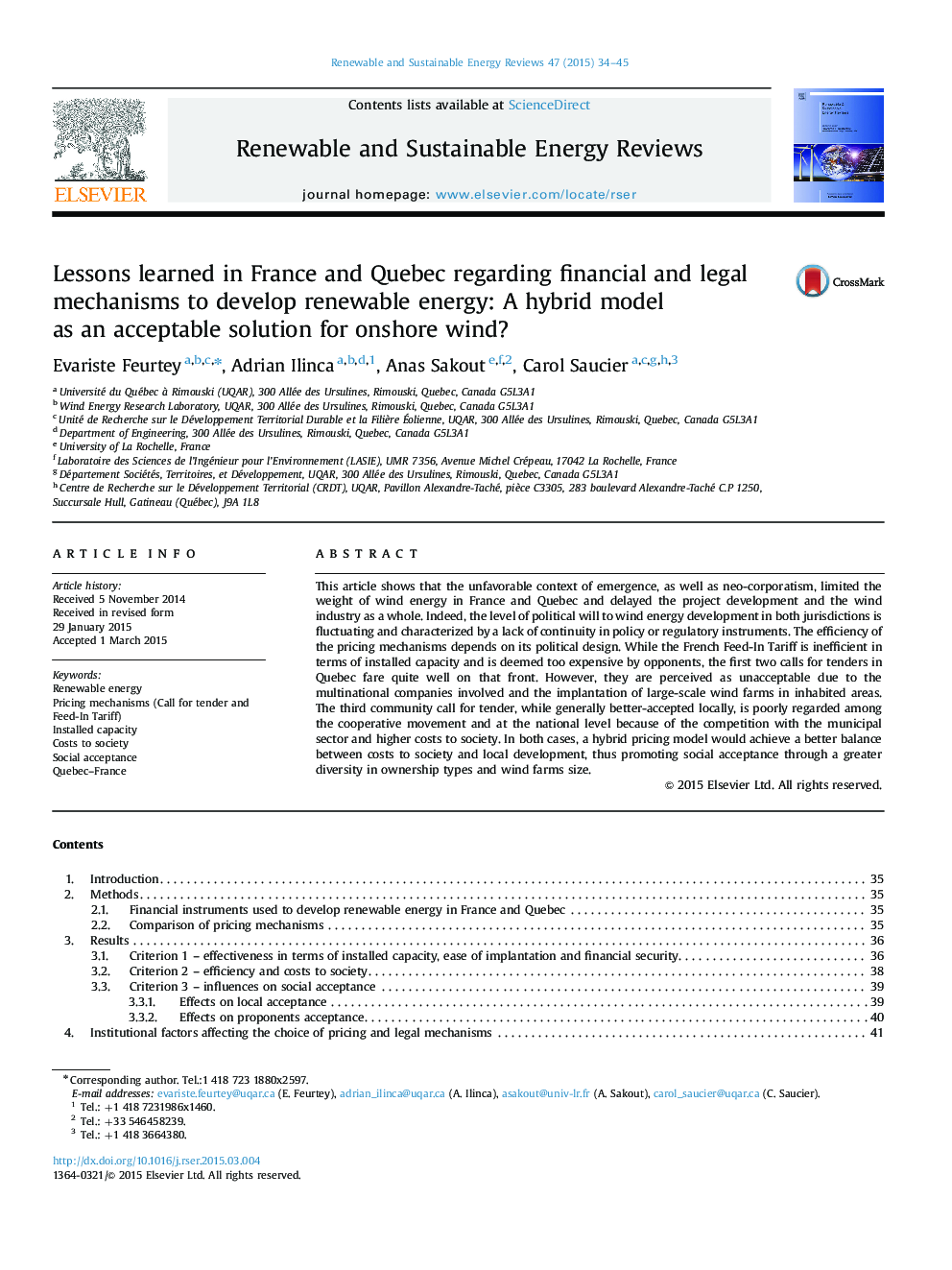| Article ID | Journal | Published Year | Pages | File Type |
|---|---|---|---|---|
| 8116630 | Renewable and Sustainable Energy Reviews | 2015 | 12 Pages |
Abstract
This article shows that the unfavorable context of emergence, as well as neo-corporatism, limited the weight of wind energy in France and Quebec and delayed the project development and the wind industry as a whole. Indeed, the level of political will to wind energy development in both jurisdictions is fluctuating and characterized by a lack of continuity in policy or regulatory instruments. The efficiency of the pricing mechanisms depends on its political design. While the French Feed-In Tariff is inefficient in terms of installed capacity and is deemed too expensive by opponents, the first two calls for tenders in Quebec fare quite well on that front. However, they are perceived as unacceptable due to the multinational companies involved and the implantation of large-scale wind farms in inhabited areas. The third community call for tender, while generally better-accepted locally, is poorly regarded among the cooperative movement and at the national level because of the competition with the municipal sector and higher costs to society. In both cases, a hybrid pricing model would achieve a better balance between costs to society and local development, thus promoting social acceptance through a greater diversity in ownership types and wind farms size.
Related Topics
Physical Sciences and Engineering
Energy
Renewable Energy, Sustainability and the Environment
Authors
Evariste Feurtey, Adrian Ilinca, Anas Sakout, Carol Saucier,
